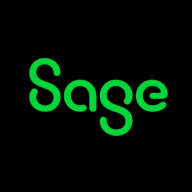

Sage CRM and Salesforce Sales Cloud both compete in the CRM software category. Salesforce Sales Cloud appears to have the upper hand due to its extensive CRM functionalities and robust customization options.
Features: Sage CRM is recognized for its stability with a focus on customizable reporting and finance integration. The system aids in tracking communications and billing, with integration support for Microsoft Office 365 that fosters collaboration. Salesforce Sales Cloud offers exceptional automation, app flexibility, and comprehensive CRM functions. It is known for its robust tracking, reporting abilities, and vast customization options, along with seamless third-party software integration.
Room for Improvement: Sage CRM needs to enhance its email and social media integration, improve its dynamic reporting capabilities, and address downtime issues associated with interface synchronization. Salesforce Sales Cloud, despite its feature richness, faces concerns regarding its cost, complexity, and integration challenges with non-Salesforce applications. Users have voiced a need for better mobile app performance, user interface adjustments, and data integration improvements.
Ease of Deployment and Customer Service: Sage CRM supports both private and public cloud deployments but is usually restricted to on-premises solutions. Its support relies on internal teams and external knowledge bases. Salesforce Sales Cloud provides flexible deployment across public, private, and hybrid clouds, mostly favoring public cloud solutions. Its support is robust but some users report delays and complex integration negotiations.
Pricing and ROI: Sage CRM is moderately priced and suitable for enterprises, though perceived as expensive in particular markets. It delivers good ROI through stable functions and reporting. Salesforce Sales Cloud is mainly seen as expensive, especially worldwide, with numerous licensing costs woven in. Nonetheless, its extensive capabilities justify its pricing by offering significant insights and process efficiency improvements.
Salesforce is highly scalable and operates efficiently.
I have not experienced any degradation in Salesforce's performance.
Compared to AWS, it is slower, which could be a hindrance.
Its easy-to-navigate interface aids in delivering clear vision and organization, especially for sales and business management.


Salesforce Sales Cloud is a comprehensive CRM platform designed for efficient lead management, sales forecasting, and customer engagement, offering extensive customization and cloud-based accessibility.
Aimed at enhancing business efficiency, Salesforce Sales Cloud supports core business processes like CRM, lead and opportunity management, sales forecasting, and customer engagement. Its robust integration capabilities allow seamless connectivity with ERP systems and various applications. The platform offers pipeline tracking, process automation, and advanced sales cycle management. Users appreciate its cloud-based accessibility, allowing teams to operate remotely and manage sales operations effectively. However, users highlight concerns about its complexity, cost, and the need for a more intuitive interface.
What features does Salesforce Sales Cloud offer?Salesforce Sales Cloud is widely implemented across industries such as finance, healthcare, and retail, supporting sales teams in tracking and managing sales operations. Its use extends to reporting, collaboration, and enhancing client interactions, allowing companies to tailor Salesforce to meet industry-specific requirements efficiently.
We monitor all CRM reviews to prevent fraudulent reviews and keep review quality high. We do not post reviews by company employees or direct competitors. We validate each review for authenticity via cross-reference with LinkedIn, and personal follow-up with the reviewer when necessary.